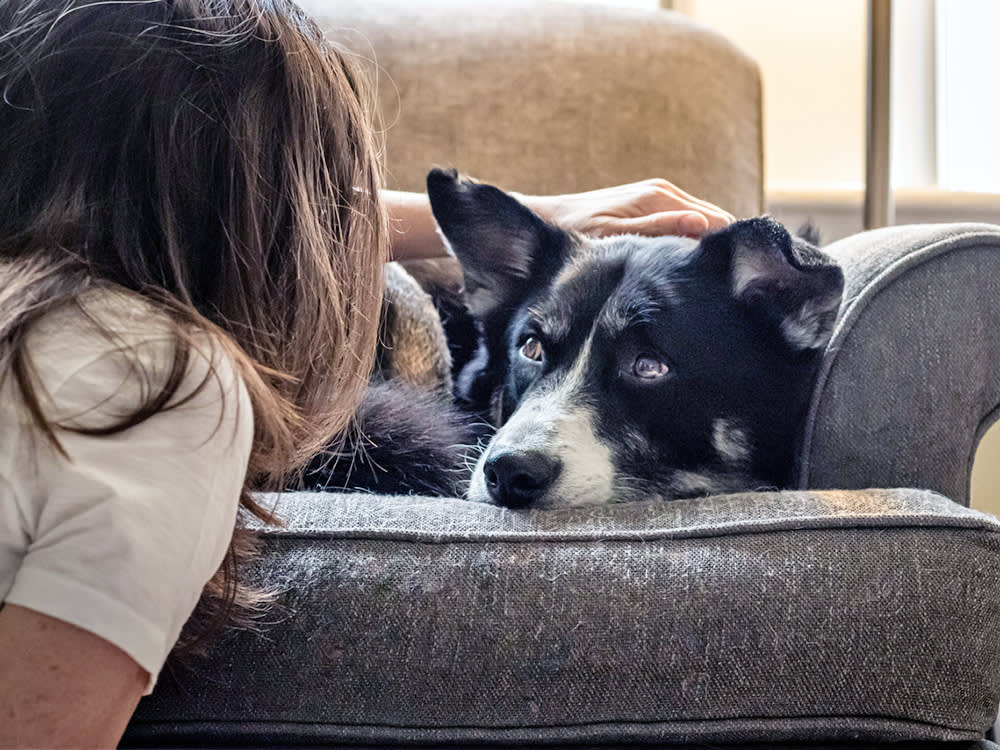How Dogs, Especially Females, Can Instinctively Judge Human Competence: Insights from Cutting-Edge Research
In a world where the bond between humans and dogs is often celebrated for its unconditional love and loyalty, groundbreaking new research sheds light on a remarkable, less obvious skill dogs possess—the ability to judge human competence. This isn’t just about who throws the best ball or gives the tastiest treat. According to a recent study from Kyoto University, dogs can actually evaluate how capable a person is, and intriguingly, female dogs are especially perceptive in this regard.
Imagine a simple scenario: two people attempt to open a container filled with delicious treats. One struggles and fails repeatedly, while the other quickly figures out how to unlock the container. Observing this, dogs don’t merely watch passively; they actively prefer to engage with the person who demonstrates clear skill and success. This preference isn’t just a cute trick—it reveals dogs’ sophisticated ability to read human actions and intentions.
What’s even more fascinating is the role gender plays in this perceptiveness. Female dogs in the experiment paid noticeably closer attention to the competent individual. They were more observant, more responsive, and seemed to make more deliberate choices about whom to trust and approach. This aligns closely with what anthrozoologist Professor Lynette A. Hart has long suggested: female dogs generally excel in focus, trainability, and interpreting human behaviors.
But why does this matter? Understanding how dogs judge human competence can deepen our appreciation for the emotional and cognitive complexity of our canine companions. It can also influence how we train and interact with dogs, tailoring approaches that respect their natural inclinations and observational skills.
From an evolutionary perspective, dogs have adapted over thousands of years to live closely with humans, relying on our behaviors for safety, guidance, and emotional support. The ability to discern who is competent among humans may have provided a survival advantage—choosing to follow and learn from the most capable individuals could mean better access to resources and protection.

Moreover, this insight can impact practical aspects of our relationship with dogs. Trainers and owners might consider that female dogs may respond better to consistent, clear demonstrations of competence and leadership. This could shape training methods that leverage their natural attentiveness and sensitivity, resulting in more effective communication and a stronger bond.
The emotional depth behind this behavior is also compelling. Dogs are often described as empathetic creatures, attuned to human moods and needs. Now, we see that their emotional intelligence extends into judgment and decision-making based on observed competence. For female dogs especially, this means they don’t just react instinctively—they are evaluating and choosing in ways that highlight their nuanced understanding of the people around them.
This discovery invites us to re-examine everyday interactions with our pets. Are we aware that our dogs are constantly watching how we perform tasks and make decisions? Do they notice when we succeed or falter, and does that shape their trust in us? For dog lovers, this knowledge adds a layer of respect for the silent, intelligent ways dogs engage with their world.
In practical terms, fostering a positive environment where dogs can observe consistent and confident behavior might enhance their well-being and responsiveness. It’s a reminder that building trust with our dogs isn’t just about affection—it’s about demonstrating reliability and competence in our actions.
As science continues to unravel the mysteries of canine cognition, studies like the one from Kyoto University remind us that dogs are far more than pets—they are keen observers, emotional partners, and perceptive judges of character. And female dogs, with their remarkable focus and sensitivity, are leading the way in this silent dialogue between species.
By recognizing and honoring these traits, we can create deeper, more meaningful connections with our dogs—relationships built not only on love but on mutual respect and understanding. The next time you open a treat container, remember: your dog is not just waiting for a snack. They’re watching, learning, and choosing who to trust.
Original Source
Kyoto University study as referenced, with commentary by Professor Lynette A. Hart, anthrozoologist.